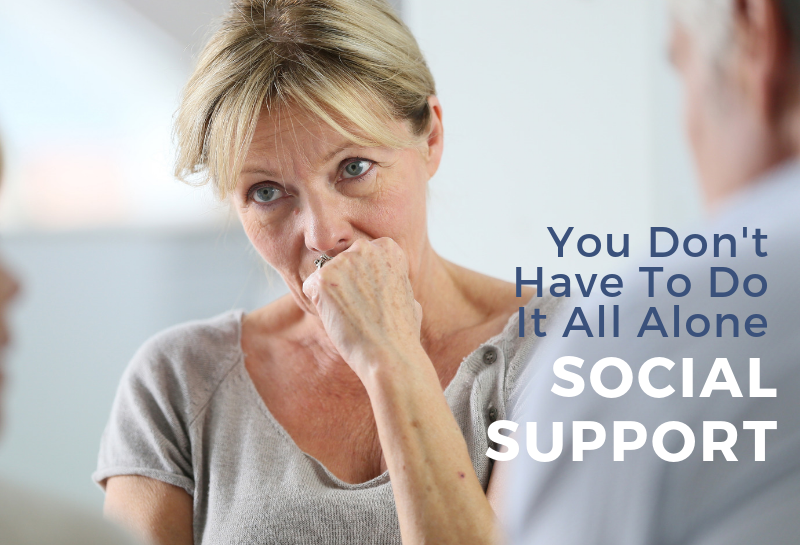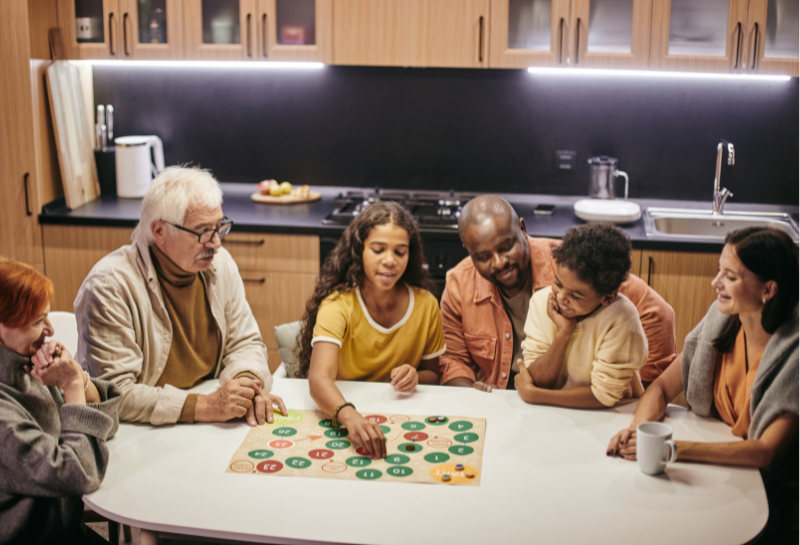How Social Wellness Month Can Impact A Caregiver!
We are coming to the end of July. July is usually filled with get togethers and celebrations. This month also featured National Ice Cream Month and Independence Day. But July is also Social Wellness Month. Social Wellness Month is about social support and having friends, family or any support system in place for when you are in a time of need.
DSCC loves everything that Social Wellness Day has to stand for. This topic of awareness not only brings attention to social wellness for seniors, but for social wellness of those who are caregivers for seniors. Being a caregiver can be extremely stressful and unbearable at times. Often their lives revolve around caregiving, leaving them very little time to build a social support system for themselves. Caregivers spend a lot of their time rushing to take care of their family, balancing a full time job and providing care for a senior loved one. Most of the time they miss the benefits of having someone to talk to during times of need or crisis.
For more on Caregiver Burnout, see our recent blog post
A social wellness support group or social wellness plan has many perks for a caregiver. Having a social wellness plan or support group can alleviate stress, reduce anxiety and decrease depression. They do take time to build so take the time needed to ensure your social needs are being met. Break it down into small steps and really think about what you want to gain from embarking on a social wellness journey. If you take on too much and try to tackle it head on, it may become overwhelming. Take a breath and write down what you would like to gain from this. Also, be careful not to make excuses – “I don’t have time” or “It’s just not a necessity right now”. Social health is very closely tied to mental health – both of which are just as important as your physical health.
When beginning, start by identifying what type of social support might work best for you. Many times people assume that it comes in the form of a simple conversation or a support group. Yes this is true, but that is just one component of social support.
There are three different ways to seek social support.
These three kinds of social support can help you as a caregiver! Each person may have a different way of establishing a social support system and incorporate multiple methods into their life.
If you ever feel like you are having a hard time and need someone to talk to immediately please call 800-950-6264 this will put you in contact with someone at NAMI (National Alliance on Mental Illness)
Once you have decided on the social support that you need, start doing some research on how to build that social support! Great resources for information can be websites, blog and even YouTube videos on caregiving. Absorb as much as you can to build the best support system. If you have any questions, reach out to your community! There are great non-for-profits and local township-based groups that can help! It’s important to keep in mind that this is something you are doing to improve yourself and also, to improve the overall care you are giving to loved ones.
Now take a deep breath the hardest part if over!
You have done all of your homework, now it is time to reach out to improve your social wellness. Take small steps to achieving your plan, this may include attending a support group, starting a blog, or even signing up your loved one for Meals On Wheels. Push aside all the uncertainty and trust yourself. That one phone call or meeting can lead to an improvement not just your social wellness but your overall wellness! Over time your plan will unfold leading to more possibilities and better care for everyone!!
More Articles That Might Interest You
Corporate Compassion Care for the Sandwich Generation Workforce
Corporate Compassion Care for the Sandwich Generation Workforce Have you considered your organization's compassion in the lives [...]
The Caregiving Balancing Act: Support Systems for the Sandwich Generation
The Caregiving Balancing Act: Support Systems for the Sandwich Generation Are you juggling the dual roles of [...]
HR Champions of Aging-in-Place: Fostering Intergenerational Connections
HR Champions of Aging-in-Place: Fostering Intergenerational Connections Attention HR leaders and professionals! “ The more HR and [...]





